Most of the time, when we feel something a little funny in our bodies, we simply shake it off: “It’s just a cold, allergies, or age,” we tell ourselves.
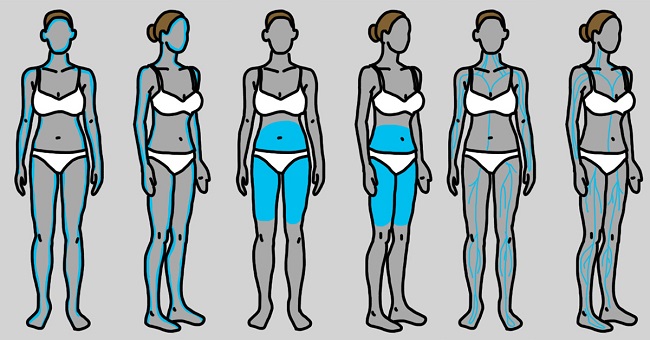
Sometimes this is true. But more often than we expect, these seemingly innocent problems can indicate bigger medical issues — like how lightheadedness could be a sign of heart disease in women.
That’s why it’s so important to pay attention to the messages our bodies send us — such as when we experience issues with our thyroid.
Though it’s a just small gland in our throats, the thyroid is responsible for producing the thyroid hormone (or TH), which regulates your metabolism, temperature, and heartbeat.
If a thyroid suddenly gets all out of whack, it can do one of two things: it either becomes overactive, producing too much of the hormone, or it can also slow down and grow sluggish, developing too little of the hormone.
To learn how to spot some of the early warning signs of thyroid issues, scroll down and read these often-overlooked symptoms.
What Does A Thyroid Look Like?
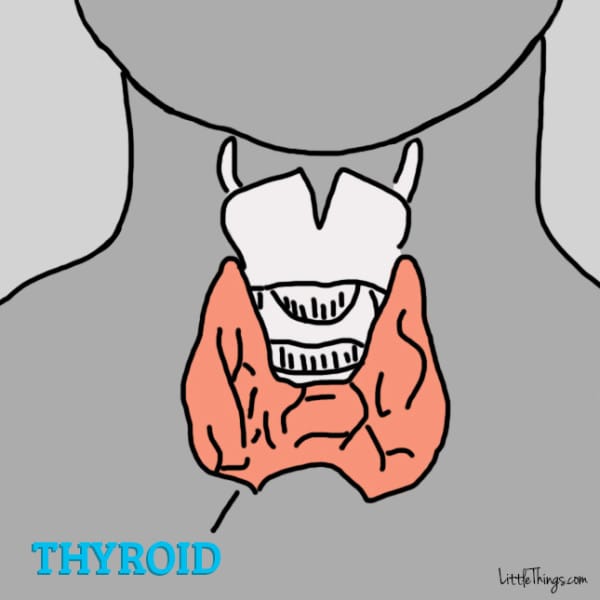
Your thyroid is located in the front of your neck and is shaped like a butterfly, which is highlighted above in red. It’s hard to believe such a tiny thing in your body can have so much influence.
If your thyroid becomes overactive, it produces too much of the thyroid hormone, thus developinghyperthyroidism.
Oppositely, your thyroid can become under-active, developing too little thyroid hormone, thus developing hypothyroidism.
Symptom #1: Feeling Sad or Depressed
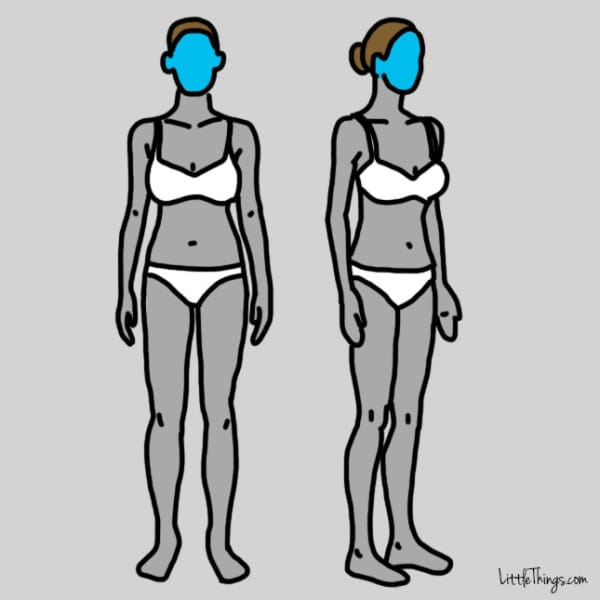
On the flip side, too much thyroid hormone can make you feel anxious, restless, or irritable.
Symptom #2: Constipation

“This is one of the top three most common symptoms of hypothyroidism,” says integrative medicine specialistDr. Robin Miller.
Symptom #3: Sleeping Too Much
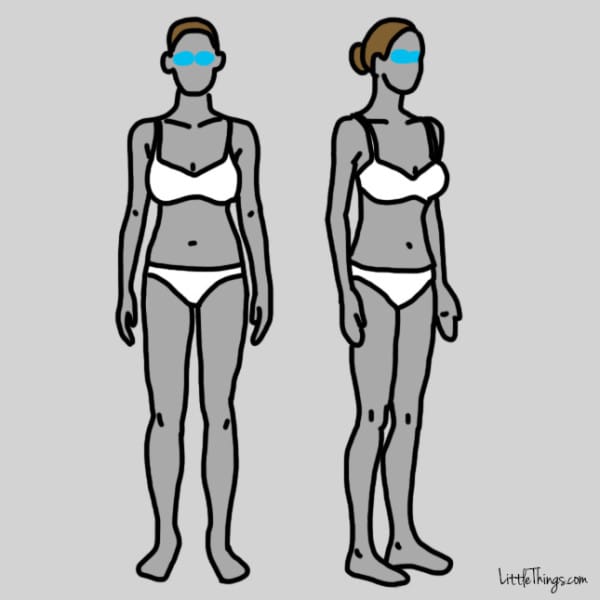
A sluggish thyroid can make bodily functions slow to a turtle’s pace, making you feel sleepy even during the day.
Symptom #4: Hair Loss and Dry Skin
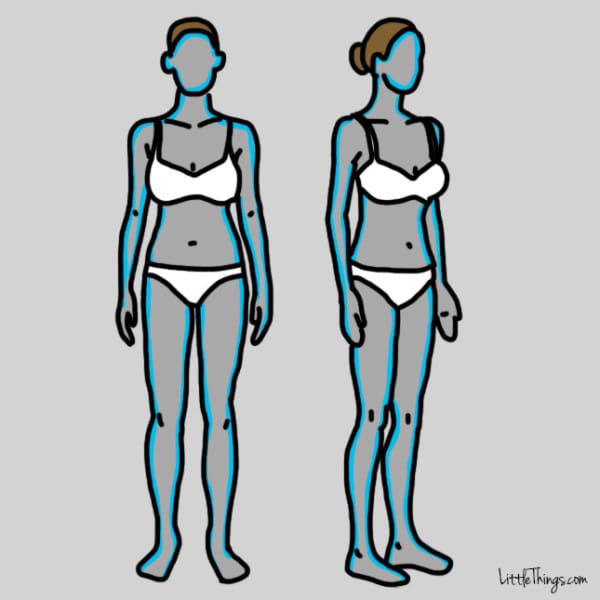
Your hair and nails may feel dry and brittle, as well. Your hair may even be falling out. The reason? A lack of thyroid hormone interrupts your hair growth cycle, which results in hair loss, sometimes even outside of your eyebrows.
“Lots of my patients come in and tell me that their hairdresser sent them,” says Dr. Miller. “They’ll say, ‘My hair stylist said I’m losing my hair and I needed to go ask my doctor about my thyroid.’ The hair salons are more aware of thyroid problems than some doctors!”
Symptom #5: Sudden Weight Gain
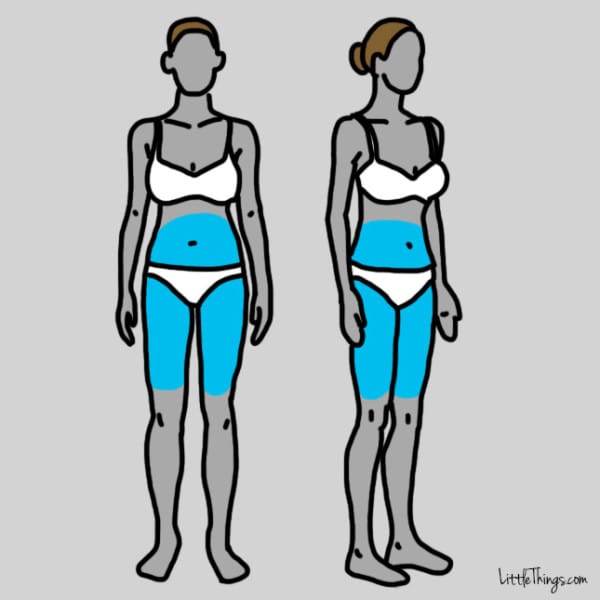
In fact, it’s one of the main reasons people show up in Dr. Miller’s office. “They’ll tell me that they aren’t eating any more than usual, but they’re gaining weight,” she says. “They are exercising, but they are getting nowhere. They can’t lose it.” It’s almost always due to an under-active thyroid, she says.
Symptom #6: No Sexual Interest
However, experiencing the other symptoms of thyroid issues — weight gain, body aches, hair loss — could also contribute to your lack of desire.
Symptom #7: Muscular Pain or Tightening
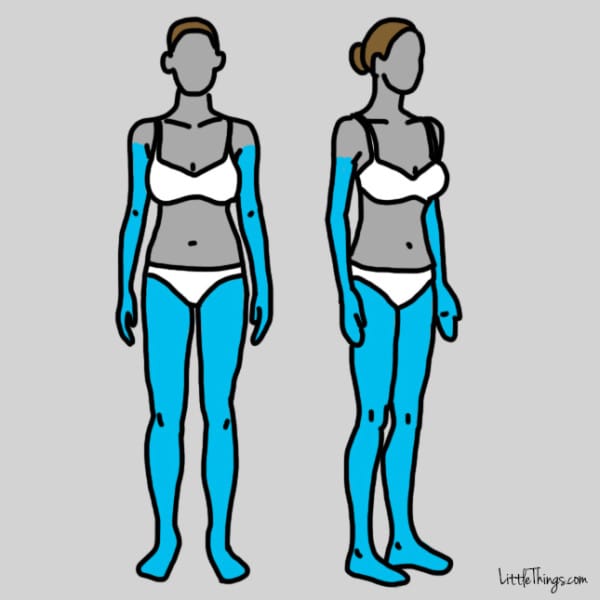
Maya If we stub a toe, our toe tends to hurt. Or if we embark on a new exercise, like rowing a canoe, we may feel soreness in our arm muscles over the next few days. These kinds of pains are perfectly normal and have an explanation.
But if you feel random and mysterious tightening or numbness in your arms, hands, legs, or feet, consider that your thyroid may be the culprit.
A lack of thyroid hormone can damage the nerves that send signals from your brain to the rest of your body over time. “The result is ‘unexplained’ tingles and twinges,” according to Dr. Miller.
Symptom #8: Fluttering Heart
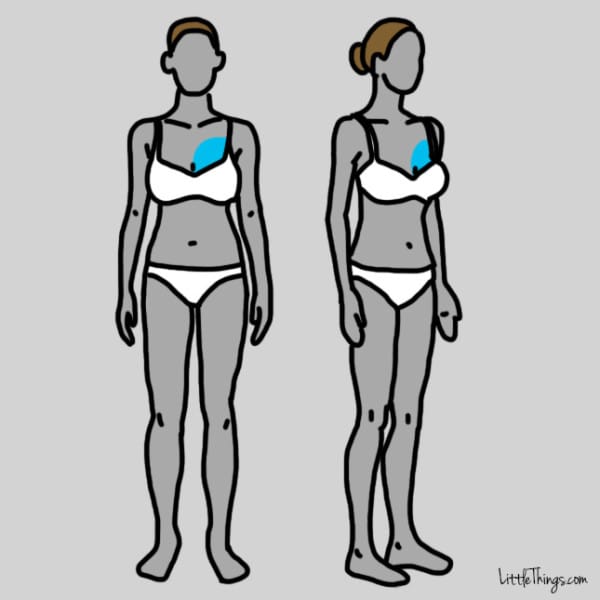
However, the flutter caused by thyroid issues is very different. It’s more pronounced; it feels like your heart is skipping a beat or two. In fact, you can maybe even feel it in the pulse points of your neck and wrist.
If this sounds like something you are experiencing, it may be heart palpitations, which may mean there are too many thyroid hormones flooding your system.
Symptom #9: Fuzzy Head
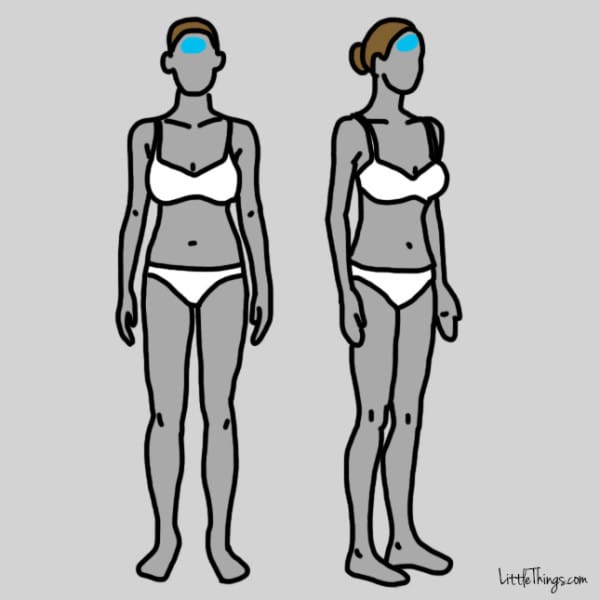
“When we treat patients for hypothyroidism, they are often surprised at how fast their brain fog goes away and how much sharper they feel,” says Dr.Miller. “Many women think it’s just something that comes along with menopause, when it really is a sign of a thyroid problem.”
Symptom #10: High Blood Pressure
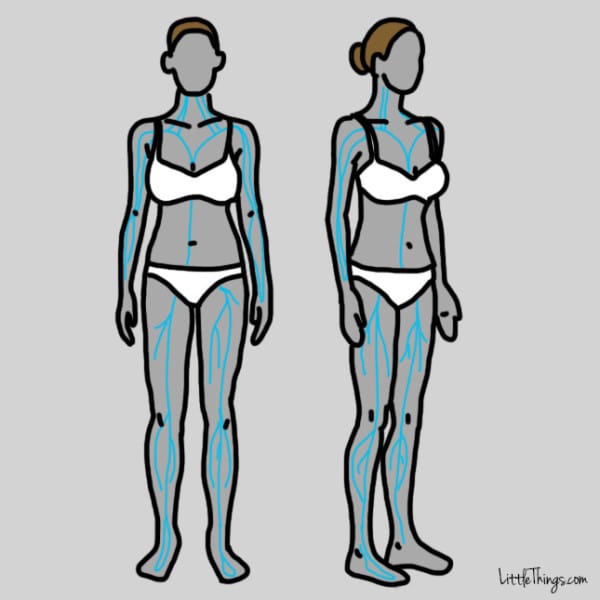
An under-active thyroid can cause high levels of the “bad” cholesterol, which unfortunately can lead to an enlarged heart or heart failure.
Symptom #11: Increased Appetite or Changes in Tastebuds
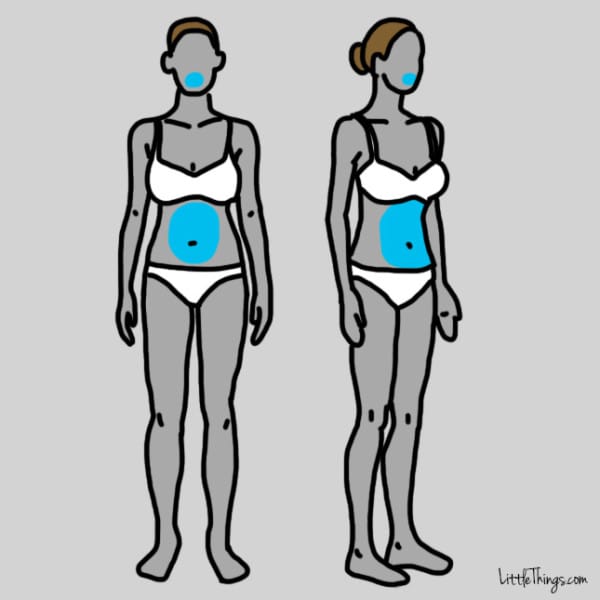
However, if you can’t stop eating, it may be hyperthyroidism — or an overactive thyroid.
If this is the case, the “hyper” part of the disorder will balance out all the calories you take in — so despite constantly eating, you might not gain any weight. Though this might sound like every woman’s dream, it’s definitely cause to make an appointment with your doctor.
Symptom #12: Neck or Throat Discomfort
If you feel any of these things, look at your neck in the mirror and see if you notice any swelling.
According to AACE Thyroid Awareness, you can further your investigation by doing the following: “Hold a mirror in your hand, focusing on the lower front area of your neck, above the collarbones, and below the voice box. Your thyroid gland is located in this area of your neck.
While focusing on this area in the mirror, tip your head back. Take a drink of water and swallow. As you swallow, look at your neck. Check for any bulges or protrusions in this area when you swallow. (Reminder: Don’t confuse the Adam’s apple with the thyroid gland. The thyroid gland is located further down on your neck, closer to the collarbone. You may want to repeat this process several times.)
If you do see any bulges or protrusions in this area, see your physician. You may have an enlarged thyroid gland or a thyroid nodule that should be checked to determine whether further evaluation is needed.”


